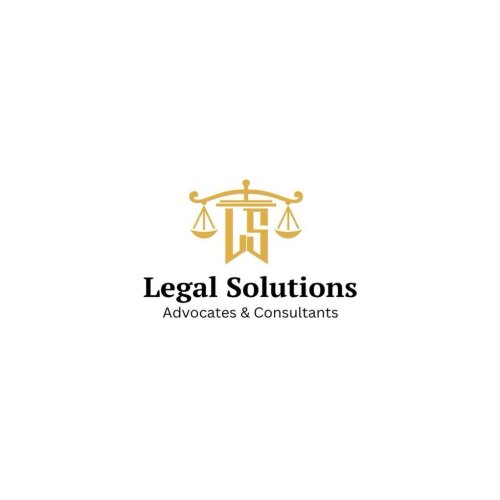Best Civil & Human Rights Lawyers in Rawalpindi
Share your needs with us, get contacted by law firms.
Free. Takes 2 min.
List of the best lawyers in Rawalpindi, Pakistan
About Civil & Human Rights Law in Rawalpindi, Pakistan
Civil and Human Rights law in Rawalpindi, and Pakistan as a whole, is governed by both national legislation and international treaties to which Pakistan is a signatory. These laws aim to protect individuals and groups against violations of their fundamental rights, encompassing issues such as freedom of expression, equality before the law, and the right to a fair trial. In Rawalpindi, the judicial system plays a critical role in interpreting and implementing these laws to ensure that citizens' rights are upheld.
Why You May Need a Lawyer
Civil & Human Rights lawyers in Rawalpindi can be crucial in various situations, including:
- Facing discrimination based on race, gender, religion, or any other status
- Experiencing unlawful detention or arrest
- Dealing with issues of free speech restriction
- Pursuing legal action for violations of labor rights
- Seeking redress for any abuse or violation by state entities
A lawyer specializing in Civil & Human Rights can provide the necessary legal expertise to navigate complex laws and advocate on your behalf in court or negotiations.
Local Laws Overview
The key aspects of local laws that are relevant to Civil & Human Rights in Rawalpindi include the Constitution of Pakistan, which enshrines fundamental rights such as equality, freedom from discrimination, and protection from unlawful detention. The Pakistan Penal Code and the Code of Criminal Procedure also offer protections against various forms of abuse and provide mechanisms for redress. Additionally, Pakistan is a signatory to various international human rights conventions, which influence local legal frameworks and practices.
Frequently Asked Questions
What constitutes a violation of civil rights in Pakistan?
Any act that unlawfully restricts an individual's freedoms or discriminates against them based on protected characteristics, such as race, gender, or religion, can constitute a civil rights violation.
How can I report a human rights violation in Rawalpindi?
Reporting can be done through local law enforcement, the Human Rights Commission of Pakistan, or by approaching a legal professional who specializes in human rights law.
Can I file a lawsuit for discrimination in Rawalpindi?
Yes, if you face discrimination, you can file a lawsuit. A lawyer can help you gather evidence, navigate legal procedures, and advocate for your rights in court.
What kind of protections are in place for labor rights?
Labor rights in Pakistan are protected under various laws, such as the Employment of Children Act, Workers' Welfare Ordinance, and Minimum Wages law, ensuring fair treatment in the workplace.
Is freedom of expression protected in Rawalpindi?
Yes, freedom of expression is protected under the Constitution of Pakistan, though certain restrictions exist in cases involving national security or blasphemy.
How are women's rights addressed in local laws?
Pakistan has enacted several laws to protect women's rights, including the Prevention of Anti-Women Practices Act and laws against domestic violence and harassment.
Can international human rights treaties affect local laws?
Yes, international treaties to which Pakistan is a signatory can influence the interpretation and application of local laws and advocate for reforms to align domestic laws with international standards.
What should I do if I am unlawfully detained?
If unlawfully detained, it is crucial to contact a lawyer immediately. They can challenge the detention and work to secure your release through legal channels.
Are there special courts for human rights cases in Rawalpindi?
While there are no dedicated human rights courts, regular civil and criminal courts in Rawalpindi address human rights violations based on the applicable local laws and regulations.
What role do non-governmental organizations (NGOs) play in protecting human rights?
NGOs in Rawalpindi and broader Pakistan often advocate for human rights, provide legal assistance, raise awareness, and work with local authorities to address and prevent violations.
Additional Resources
For more information or assistance, you may contact the following organizations:
- Human Rights Commission of Pakistan (HRCP): A non-profit organization dedicated to promoting and protecting human rights.
- Legal Aid Offices: Various NGOs provide free or low-cost legal advice and assistance.
- Government Human Rights Departments: Official bodies that oversee the implementation of human rights laws and policies.
Next Steps
If you need legal assistance in Civil & Human Rights, consider the following steps:
- Identify the nature of your issue to determine the appropriate area of law.
- Consult with a legal professional specializing in human rights law to discuss your case.
- Gather any relevant evidence or documentation related to your case.
- Follow through with legal advice and, if necessary, proceed with filing a lawsuit.
- Stay informed about your rights and ongoing proceedings.
Seeking legal advice early on can play a crucial role in effectively protecting and advocating for your rights.
Lawzana helps you find the best lawyers and law firms in Rawalpindi through a curated and pre-screened list of qualified legal professionals. Our platform offers rankings and detailed profiles of attorneys and law firms, allowing you to compare based on practice areas, including Civil & Human Rights, experience, and client feedback.
Each profile includes a description of the firm's areas of practice, client reviews, team members and partners, year of establishment, spoken languages, office locations, contact information, social media presence, and any published articles or resources. Most firms on our platform speak English and are experienced in both local and international legal matters.
Get a quote from top-rated law firms in Rawalpindi, Pakistan — quickly, securely, and without unnecessary hassle.
Disclaimer:
The information provided on this page is for general informational purposes only and does not constitute legal advice. While we strive to ensure the accuracy and relevance of the content, legal information may change over time, and interpretations of the law can vary. You should always consult with a qualified legal professional for advice specific to your situation.
We disclaim all liability for actions taken or not taken based on the content of this page. If you believe any information is incorrect or outdated, please contact us, and we will review and update it where appropriate.
Browse civil & human rights law firms by service in Rawalpindi, Pakistan
Rawalpindi, Pakistan Attorneys in related practice areas.











